Project Team
University of Liverpool, UK:
University of Miami:
Scottish Association for Marine Sciences, UK:
National Oceanography Centre, Southampton, UK:
University of Southampton, UK:
British Antarctic Survey, UK:
Students
University of Miami, US
Scottish Association for Marine Sciences / University of the Highlands and Islands
Project Partners/Collaborators
Carl Spingys (National Oceanography Centre, Southampton, UK)
Elaine McDonagh (NORCE Norwegian Research Centre, Norway /National Oceanography Centre, Southampton, UK)
Richard Sanders (ICOS OTC / NORCE Norwegian Research Centre, Norway / National Oceanography Centre, Southampton, UK)
Gaël Forget (Massachusetts Institute of Technology, US)
Jon Lauderdale (Massachusetts Institute of Technology, US)
Eleanor Frajka Williams (University of Hamburg, Germany)
Jaime Palter (University of Rhode Island, US)
Daniel Whitt (NASA Ames Research Center, US)
Mick Follows (Massachusetts Institute of Technology, US)
Lidia Carracedo (Ifremer, France)
Mark Moore (University of Southampton, UK)
Project Team
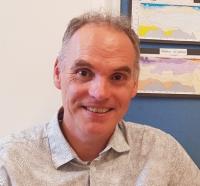
| Professor - Earth, Ocean and Ecological Sciences Ric uses both model and in situ data to understand climate relevant ocean processes. He has led pioneering work over the last 20 years focusing on the role of diverse physical processes in controlling North Atlantic biological production. This has included explaining how the nutrients in western boundary currents control surface nutrients in the high latitude North Atlantic. His recent research includes understanding how surface warming increases linearly with CO2 emissions on multi-decadal and millennial timescales, and how ocean heat content and overturning varies in the North Atlantic https://www.liverpool.ac.uk/~ric/ https://www.liverpool.ac.uk/environmental-sciences/staff/richard-williams |  |
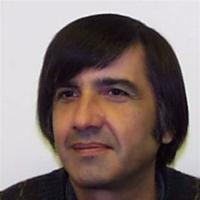 | Senior Research Fellow Earth, Ocean and Ecological Sciences Vassil is an expert in numerical modelling, working with cartesian and isopycnic-coordinate ocean models, using cluster and supercomputer platforms. He has developed a model block for DIN and DON cycling and transport, used in the study of nutrient streams in the North Atlantic. He also has an expertise in observational and model data analysis and assimilation. https://www.liverpool.ac.uk/environmental-sciences/staff/vassil-roussenov/ |  |
 | Principal Investigator - Marine Biogeochemistry Pete’s research interests lie in North Atlantic biogeochemical variability and the accumulation of anthropogenic carbon in the North Atlantic. His work has interrogated the role of ocean circulation in this, the interaction between ocean overturning and biogeochemical processes, and their impact on air-sea CO2 fluxes. | 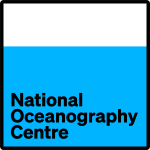 |
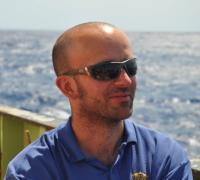 | Research Scientist/Technologist Darren is a physical oceanographer with expertise in measurements made from moored sensors. He specialises in mooring design, instrumentation and analysis of the recovered data, including biogeochemical measurements. He is also the NOC's technical lead on BGC Argo floats. |  |
 | Principal Investigator - Physical Oceanography Louis Clément has expertise in using moored instrumentation, shipboard measurements, Argo profiling floats, and microstructure data to diagnose ocean processes spanning scales from micro- to meso-scale and global ocean warming at the mixed layer |  |
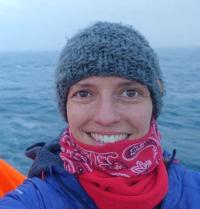 | Lecturer in Nutrient Biogeochemistry Robyn uses geochemical tracers to explore the role of water mass circulation in driving local and far field nutrient availability in the Arctic sector of the North Atlantic and in the South Atlantic. She has used observations of nutrients and carbon in combination with microstructure data to quantify tidally-driven nitrate fluxes in the North Atlantic and to assess nutrient budgets in the subtropical gyres. |  |
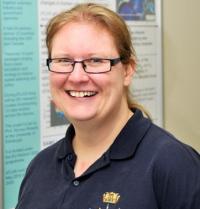
| PDRA in observational oceanography Clare works at the interface of physical and chemical oceanography including calculating the transport of nutrients and carbon by the Atlantic Meridional Overturning Circulation. She has an expertise in the large-scale circulation and water masses of the subpolar North Atlantic. Her work on C-Streams will focus on the biogeochemical Argo floats. |  |
 | Professor in Physical Oceanography Alberto has developed and applied techniques to diagnose isopycnal and diapycnal mixing from hydrographic and microstructure observations and to quantify turbulent dissipation and mixing rates from glider observations. Using such techniques, he has unravelled how the interplay of isopycnal and diapycnal mixing shapes the overturning circulation across the Southern Ocean and determined the long-term evolution of turbulent dissipation in the low- and mid-latitude North Atlantic. https://www.southampton.ac.uk/people/5x2hkq/professor-alberto-naveira-garabato |  |
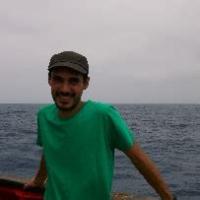 | Lecturer in Physical Oceanography Bieito does interdisciplinary oceanographic research, connecting small-scale physical processes with ocean circulation, biogeochemical cycles and plankton dynamics. He is particularly interested in the role of mixing and ocean ventilation in shaping the ocean’s biogeochemical cycles. He uses observations from ships and autonomous platforms such as floats and gliders. https://www.southampton.ac.uk/people/5ygpzq/doctor-bieito-fernandez-castro | |
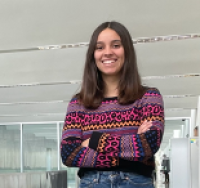 | Research Assistant Espe is an oceanographer whose research focuses on physical-biological interactions. She uses a combination of in situ observations, biological samples, as well as modelling output, to understand how physics shapes the distribution of nutrient and plankton in the ocean |  |
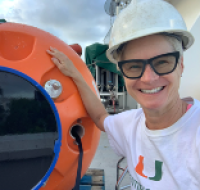 | Professor of Oceanography Lisa is an expert on the physics of western boundary currents, including their modes of variability; volume, heat, and salt transports; water masses; upwelling and mixing, and their role in global climate and climate change. She has funded and led multiple sea-going experiments to advance our understanding of these intense currents, most especially in the Agulhas Current off South Africa. She leads the NSF FOCUS project to collect continuous measurements of density and geostrophic velocity across the Florida Current in synergy with the C-Streams moorings. |  |
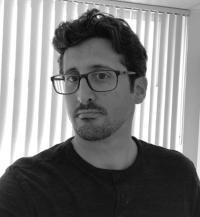 | Assistant Scientist Gui supports both technical and science teams, from instrument preparation to deck operations to CTD profiling, and helping with collecting, analyzing, and visualizing all cruise-related data. https://people.miami.edu/profile/1e744856fd67499739cc9ad18f608d30 |  |
 | Sr. Research Associate Eduardo leads the OTECH shop at University of Miami. He is charge of mooring and deck operations, from design to deployment, including building and instrument calibration. https://people.miami.edu/profile/dea2619dbc7be445526f99a5eace282f |  |
 | Physical Oceanographer Dave is interested in the role of small-scale mesoscale eddies the large-scale dynamics, particularly in the Southern Ocean. His primary goal is to understand how eddies contribute to the volume transport of the Antarctic Circumpolar Current (ACC) and the Residual Meridional Overturning Circulation (RMOC). |  |
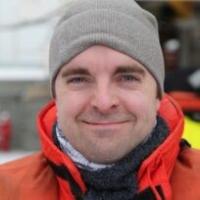 | Physical Oceanographer (Adjoint Modelling) Dani uses adjoint models to carry out comprehensive, efficient sensitivity experiments that calculate linkages between oceanic properties and factors that control those properties (e.g. upstream wind stress). They have applied these techniques to multiple areas, including the Southern Ocean, quantifying the controls on mode water formation regions, and the recently ventilated Southern Ocean. Of particular relevance to C-Streams, they have used adjoint modelling to reveal a previously unknown adjustment pathway between wind stress off the coast of West Africa and Labrador Sea heat content, and to investigate air-sea CO2 equilibration timescales. |  |
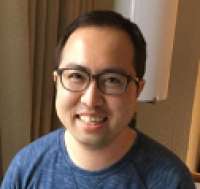 | Physical Scientist: Ocean and Carbon Cycle Modeller Yohei is interested in understanding how ocean biogeochemical cycles (carbon, oxygen, and nutrients cycles) evolves with climate change and variability. He mainly uses hierarchy of models from a simple box model to an Earth System Model to tackle scientific questions related to his interests but also facilitate collaboration with observational oceanographers and climate scientists. He will be working on forward and adjoint ocean biogeochemistry modelling for the C-Streams project. |  |
Students
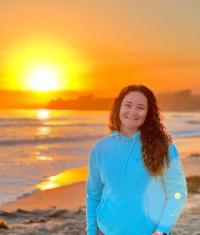 | PhD student Researching Gulf Stream Variability and sea level rise. |  |
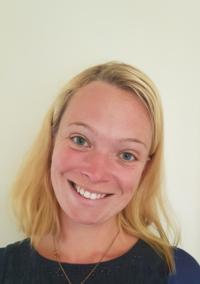 | PhD student Researching the impact of Gulf Stream Variability on downstream nutrient transports and subpolar gyre carbon |   |
Collaborators
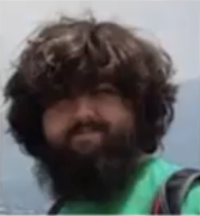 | Research Scientist Carl is a physical oceanographer with expertise in utilising in situ ocean observations to provide insight on processes ranging from the meso- to micro-scale. This has included quantifying nutrient fluxes driven by isopycnal mixing, understanding the nature of turbulence near the bottom boundary, and development of novel optical fibre sensing techniques |  |
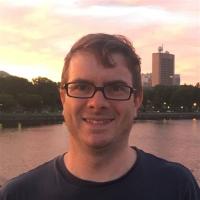 | Research Scientist Gael investigates oceanography and climate, focusing on ocean modeling and the analysis of global ocean data sets such as Argo profile collections and satellite altimetry. Amongst other approaches, he carries out ocean state estimation using the MIT general circulation model to interpolate and interpret ocean observations, and also participates in the development of the MITgcm and in the NASA Sea Level Change Team activities. Gael’s scientific interests include: Ocean circulation and Climate variability; tracer transport and turbulent transformation processes; interaction of bio-geochemistry and physical processes; global cycles of heat, water, and carbon; observational statistics; forward and inverse modeling |  |
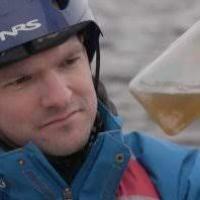 | Research Scientist Jon is a physical oceanographer and ocean biogeochemical modeller intrigued by the mechanisms through which the ocean can alter Earth's climate and atmospheric CO2 concentration both in the past and under future anthropogenic changes. His focus has, so far, been on high latitude regions, particularly the Southern Ocean. Jon uses global coarse resolution numerical models of ocean circulation coupled to simplified biogeochemistry routines, but also exploits composite tracers to reveal how different components of carbon and nutrient cycles operate. |  |
 | Research Professor Elaine’s work research focuses on using in situ ocean observations to quantify ocean circulation and fluxes, and the temporal changes in water-mass properties https://www.norceresearch.no/en/persons/elaine-mcdonagh/326796 |   |
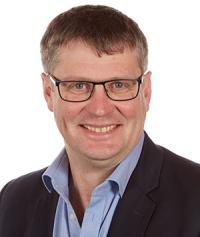 | ICOS OTC Director Richard has undertaken research into the Biological Carbon Pump, the biologically mediated storage of carbon in the oceans interior which controls climate, land ocean carbon transfers and the oceanic uptake of CO2 from the atmosphere and maintains keen research interests in each. https://www.norceresearch.no/en/persons/richard-sanders/326797 |    |
 | Professor, Experimental Oceanography Eleanor’s research group aims to advance our understanding of ocean dynamics and circulation in a changing climate. She specialises in physical oceanographic measurements and using approaches that leverage traditional observations with new platforms and satellite data. Eleanor uses a range of observational platforms to address problems spanning scales (from micro- to large-scale), and spanning spheres (from the ocean to biogeosphere, cryosphere and atmosphere). https://www.ifm.uni-hamburg.de/en/institute/staff/frajka-williams.html |  |
 | Associate Professor of Oceanography Jaime studies ocean circulation in order to understand the cycling of carbon, oxygen, nutrients, and the ocean's role in climate. Her group is currently exploring ocean circulation variability in the North Atlantic, with projects in the Gulf Stream, the oxygen minimum zone, and the subpolar North Atlantic. Although her interests and modeling work extend to the global oceans and climate. | |
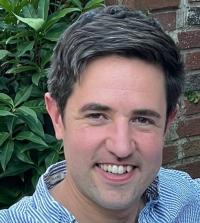 | Research Scientist, NASA Ames Research Center Daniel is an interdisciplinary oceanographer in the Biospheric Science Branch of the Earth Science Division at NASA Ames. He uses observations, high-end computing, and theory to model and understand the ocean, including its physics, biogeochemistry and ecology as well as its role in the changing Earth system. |  |
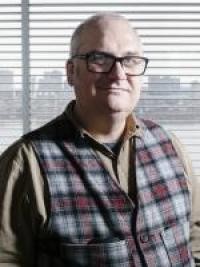 | Professor, Director of the MIT/WHOI Joint Program Mick’s work seeks to understand how the interactions of physical, chemical and biological processes modulate the structure and function of marine microbial communities and regulate the oceanic cycles of carbon and nutrient elements on global and climate scales. Using idealized theory, numerical models and the analysis of observed data he and his group seek to identify the relationships of individuals and communities to their environment, connecting cellular-scale processes to global microbial community structure. In particular, his team has created a marine ecosystem model that, when initialized with many phytoplankton types whose physiological traits have been determined stochastically, results in emergent community structure and biogeography consistent with known distributions of microbes in the global oceans. |  |
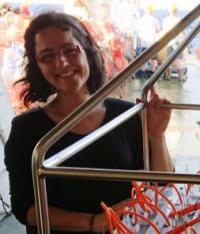 | Researcher Lidia’s research focuses on data analysis of in situ observations of physical and carbon system variables, with the aim of better understanding ocean's role in climate as a carbon pump. |  |
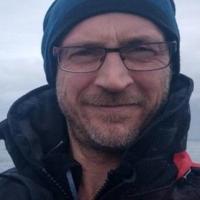 |
Professor of Oceanography Mark’s research interests cover a wide range of areas of marine biogeochemistry, oceanic nutrient and carbon cycling and phytoplankton photosynthesis, but include photoacclimation, iron stress, large scale patterns of nutrient limitation, chlorophyll fluorescence, oceanic nitrogen fixation, and the effects of ocean circulation on these. https://www.southampton.ac.uk/people/5x59qh/professor-mark-moore |  |